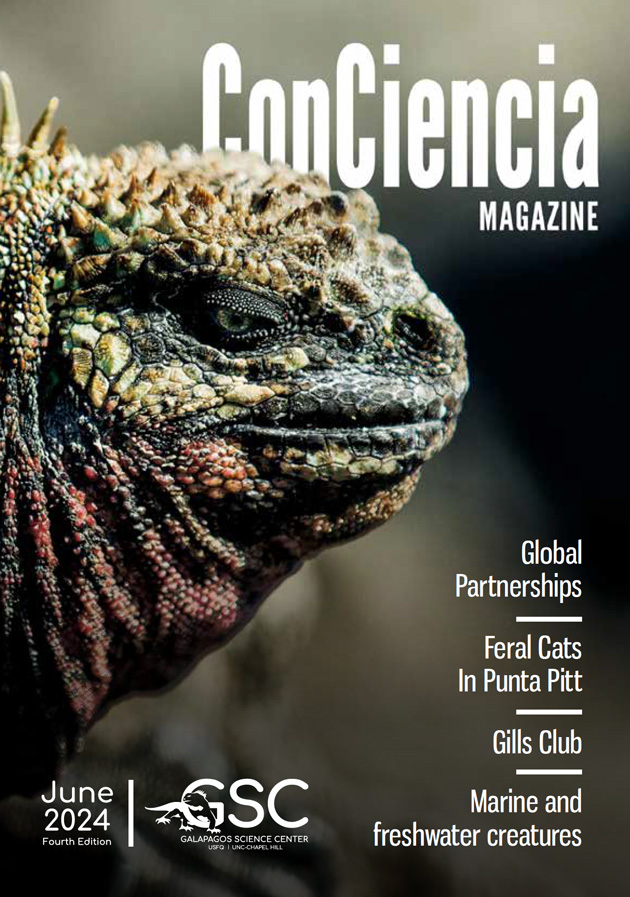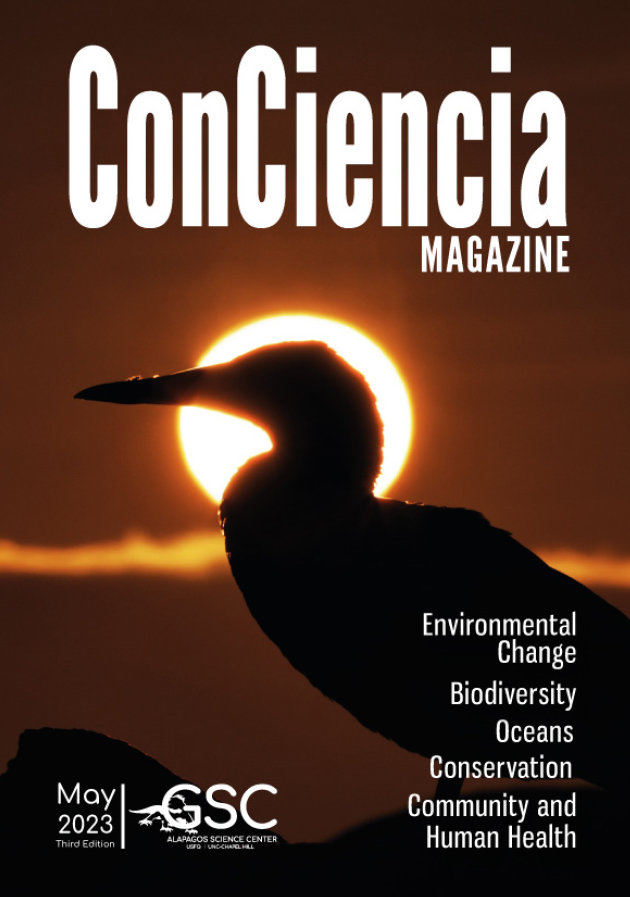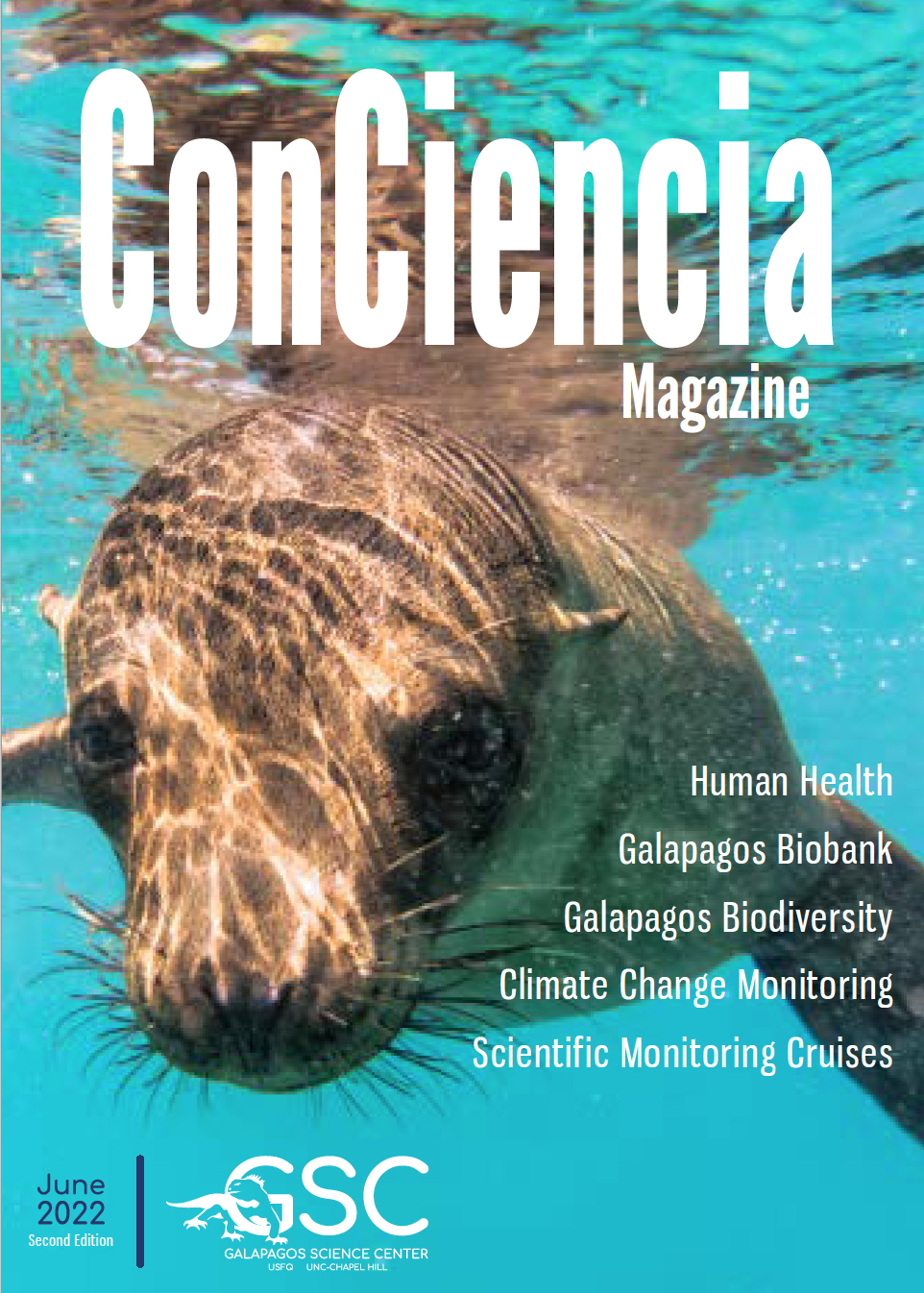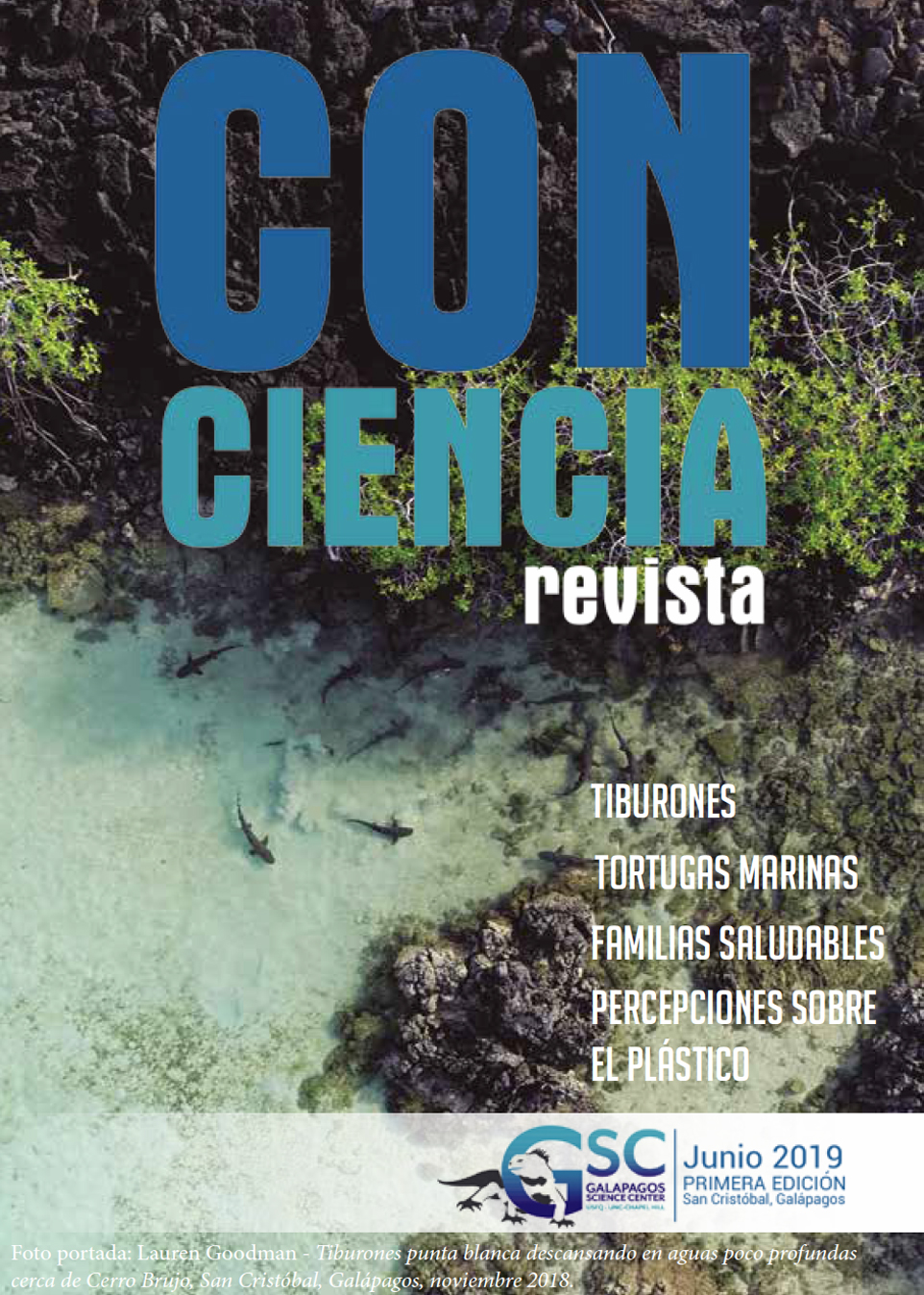NEWS & EVENTS
LATEST NEWS
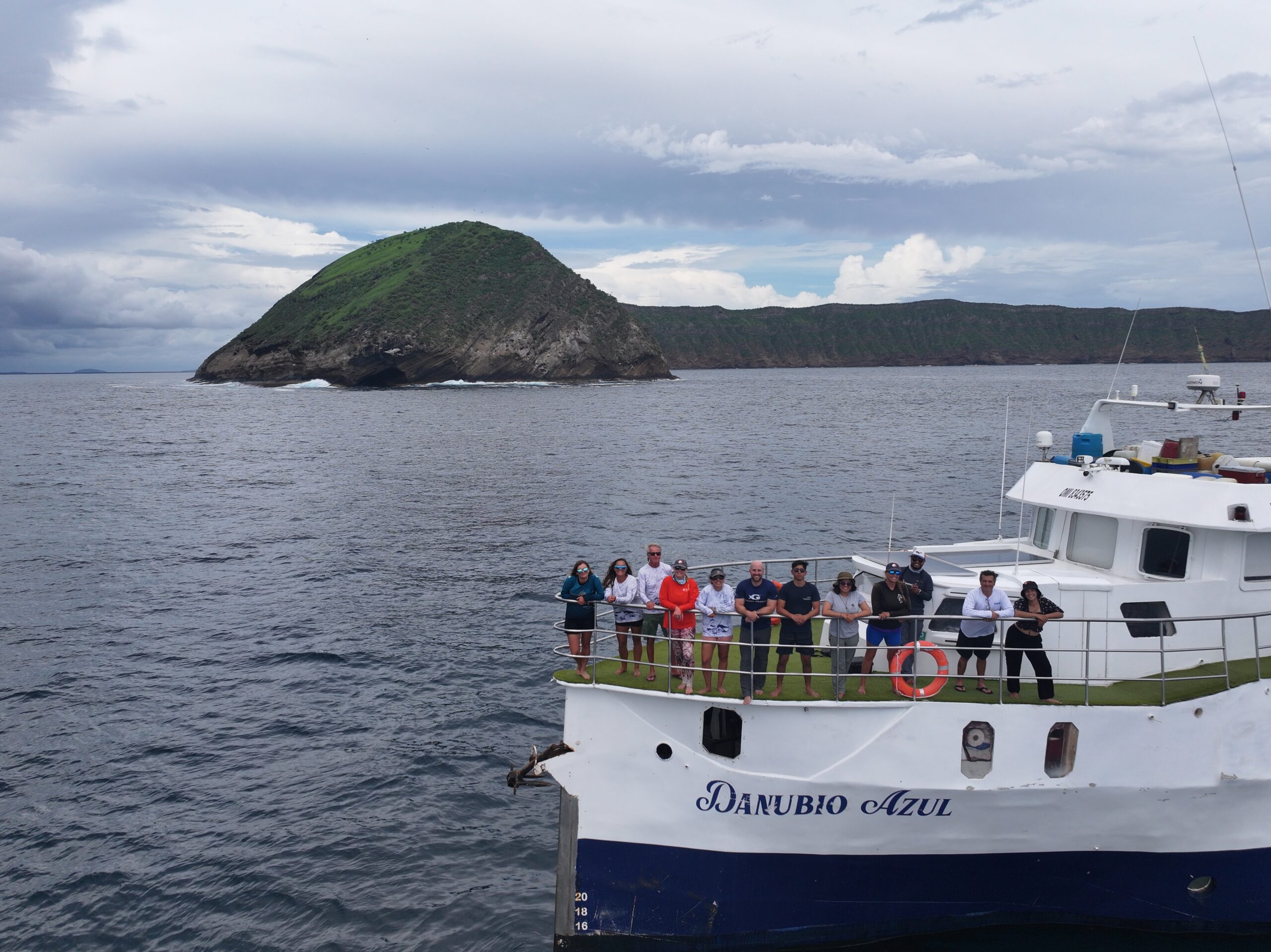
Scientific expedition studies several megafauna species in Galápagos
The Galápagos National Park Directorate (GNPD), in collaboration with Universidad San Francisco de Quito (USFQ), the Galapagos Science Center (GSC), and Proyecto Mantas Ecuador (PME), conducted a scientific expedition in the southern and eastern regions of Isabela Island. Supported by Brookfield Zoo Chicago’s Sarasota Dolphin Research Program, Mote Marine Laboratory, Georgia Aquarium, and the Ocean Tracking Network, the expedition provided valuable data for at least four research projects.
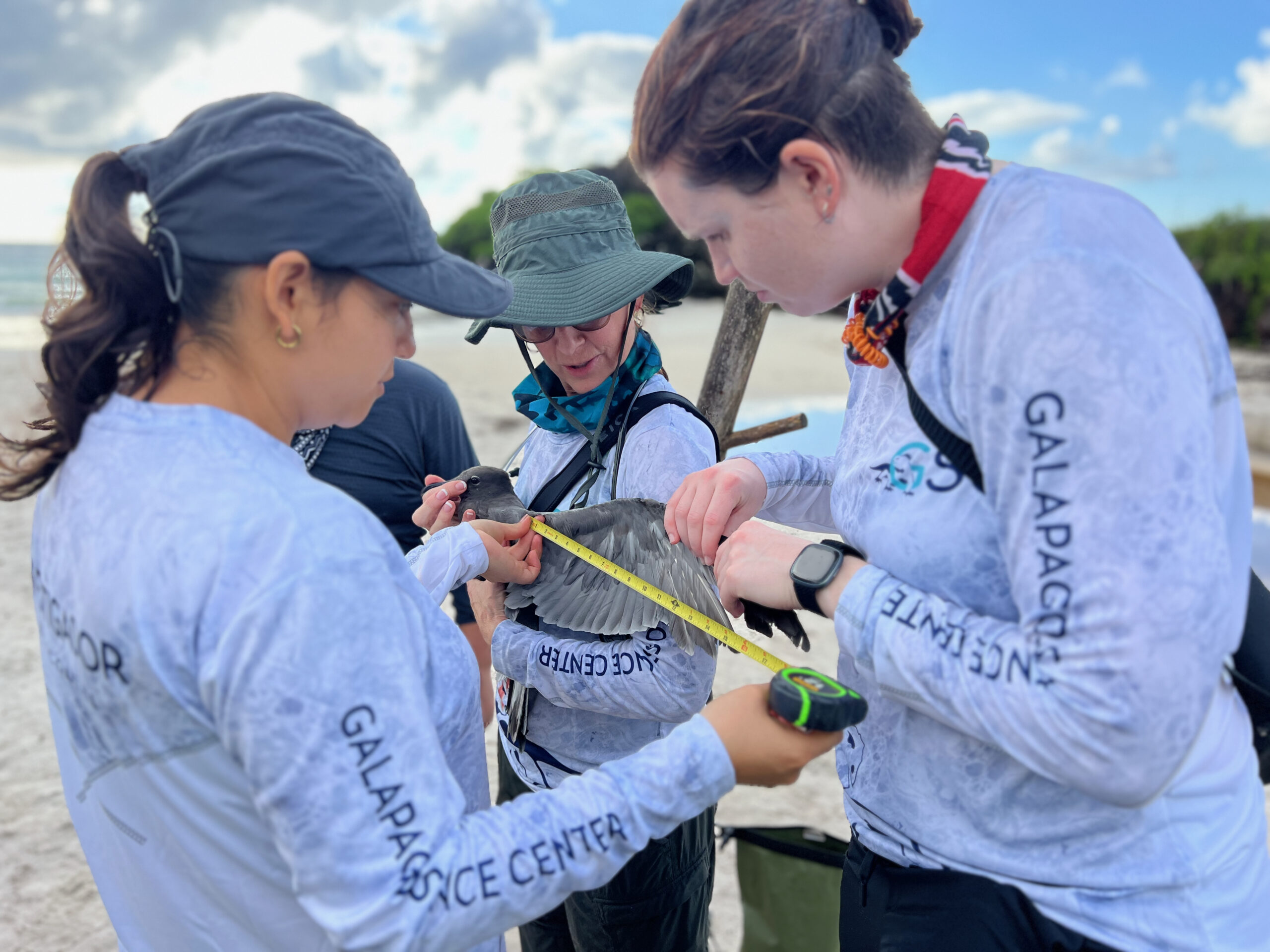
A Decade of ISLAVET: Science in action for the conservation of Galápagos
The ISLAVET program successfully concluded its tenth edition, solidifying its role as a key initiative for science and conservation in the archipelago. This year, a team of 33 participants, including 23 veterinary students and 10 veterinarians from the United States, Australia, the United Kingdom, Singapore, and the USFQ School of Veterinary Medicine, took part in field research under the leadership of Juan Pablo Muñoz, Diana Deresienski, Gregory Lewbart, and Daniela Alarcón from the Galapagos Science Center (GSC).
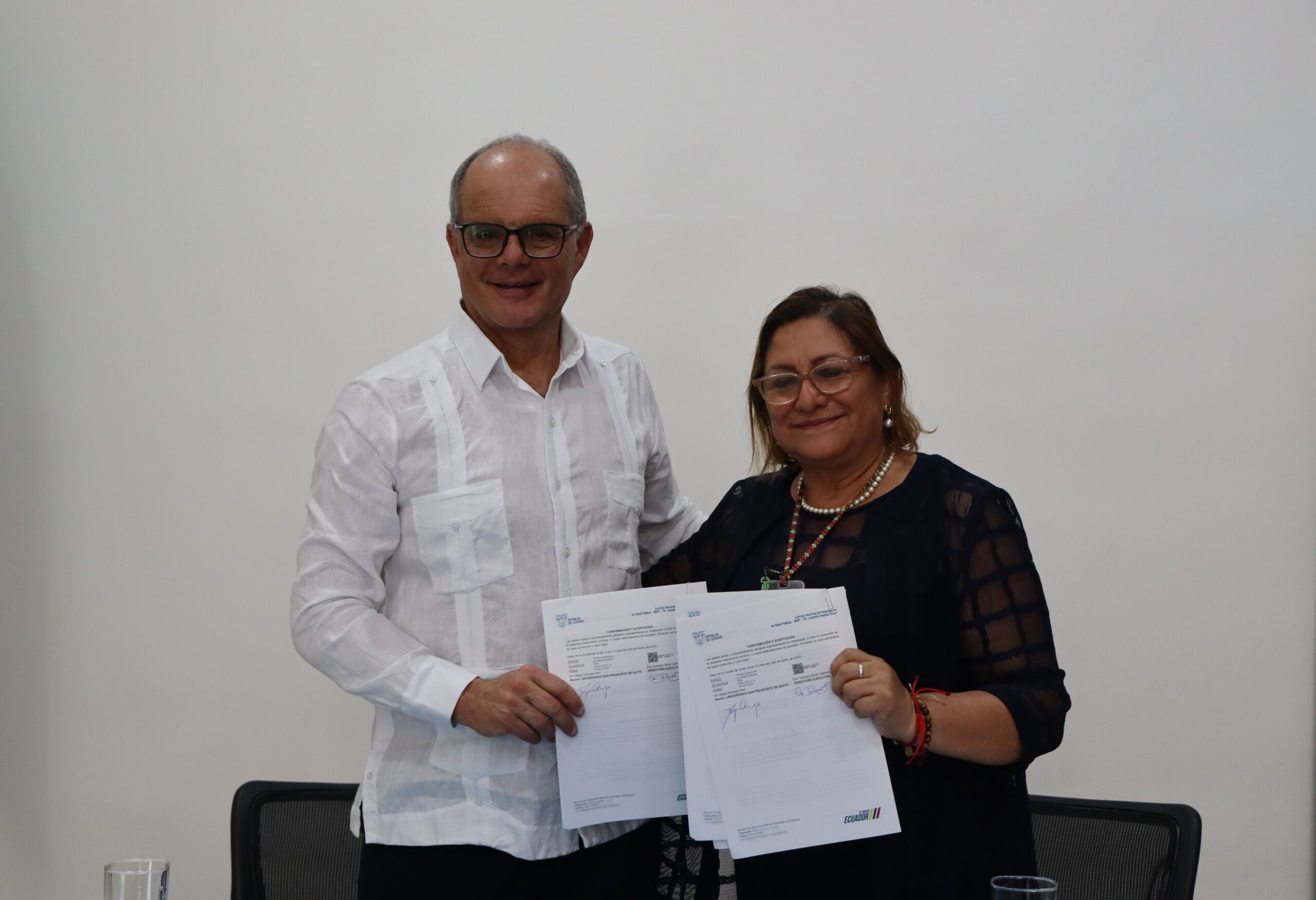
USFQ and INSPI sign an agreement to strengthen scientific research and academic training
Universidad San Francisco de Quito (USFQ) and the National Institute of Public Health Research (INSPI) ‘Dr. Leopoldo Izquieta Pérez,’ an institution under the Ministry of Public Health (MSP), have signed an inter-institutional cooperation agreement to strengthen scientific research and academic training in public health and wildlife conservation in Ecuador.

Amanda Thompson named permanent director of the Center for Galapagos Studies
The human biologist has been interim director of the center since 2023 and is also co-director of the Galapagos Science Center.
SCIENTIFIC ARTICLES
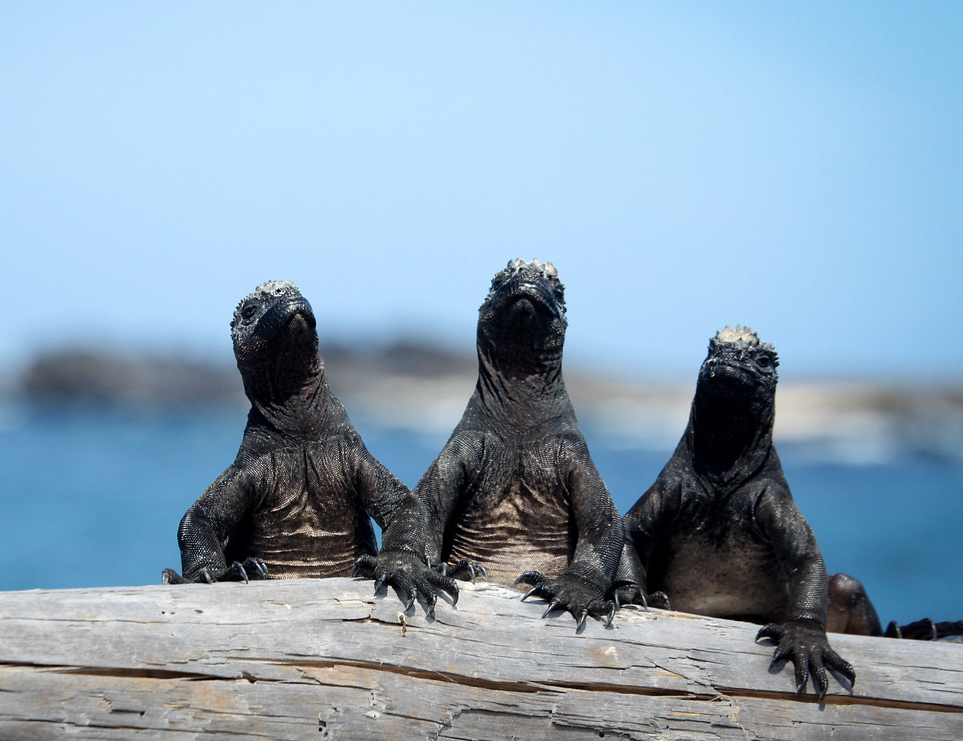
Changes in marine iguana (Amblyrhynchus cristatus) heart rates suggest reduced metabolism during El Niño events
The marine iguanas of Galápagos (Amblyrhynchus cristatus) have the ability to lower their heart rate to conserve energy—an adaptation developed to cope with El Niño events. During these periods, warmer ocean temperatures reduce algae, their main food source, threatening the survival of the world’s only marine lizard.
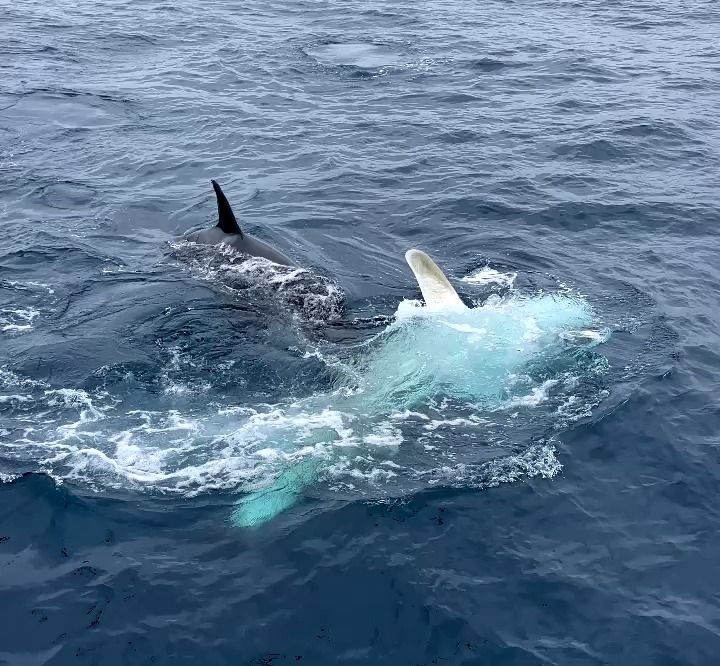
Killer Whale (Orcinus orca) Opportunistic Predation Events on Whale Sharks (Rhincodon typus) in the Eastern Tropical Pacific
Killer whales (Orcinus orca) are known as one of the ocean’s most versatile predators, yet their behavior in tropical waters remains a mystery. This study documents, for the first time, orca attacks on whale sharks (Rhincodon typus) in Ecuador and Panama, providing valuable insights into their hunting strategies in the Eastern Tropical Pacific (ETP). Understanding these events is key to expanding knowledge about this predator’s dynamics in the region.

Genomes of Galápagos Mockingbirds Reveal the Impact of Island Size and Past Demography on Inbreeding and Genetic Load in Contemporary Populations
The species inhabiting oceanic islands have been fundamental in the study of evolution. Due to their isolation, these populations tend to have smaller sizes and lower genetic diversity compared to their mainland relatives. This can lead to negative effects such as the accumulation of harmful mutations and inbreeding (mating between genetically related individuals), which threatens their survival. The Galápagos mockingbirds (Mimus spp.) represent an ideal case to analyze the relationship between the size of the island they inhabit and genetic variations in their populations.
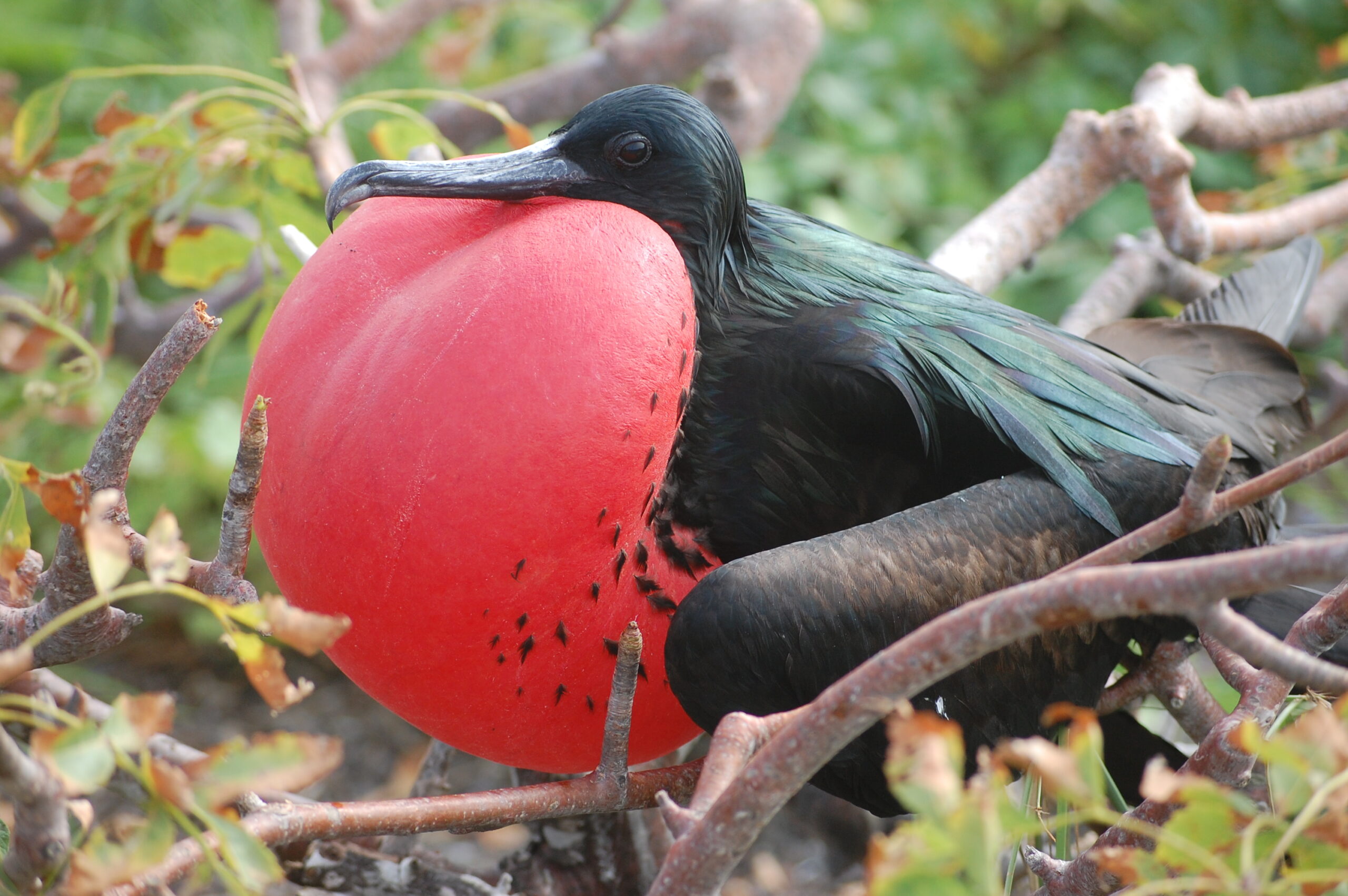
Health status and morphometrics of Galápagos magnificent frigatebirds (Fregata magnificens magnificens) determined by hematology, biochemistry, blood gas, and physical examination
The magnificent frigatebird (Fregata magnificens; MFB) is a seabird found in the Atlantic and Pacific Oceans. In the Galápagos Islands, the endemic subspecies Fregata magnificens magnificens inhabits the archipelago. This study presents, for the first time, the hematological and blood biochemical values of this population in the region.
EVENTS
6TH GALAPAGOS RESEARCH AND CONSERVATION SYMPOSIUM
The 6th Galápagos Research and Conservation Symposium took place on Monday, July 15 and Tuesday, July 16, 2024 at the Charles Darwin Convention Center on San Cristóbal, Galápagos. This important multidisciplinary event was organized by the Galapagos Science Center, with the sponsorship of the University of North Carolina at Chapel Hill and the Universidad San Francisco de Quito with the endorsement of the Galapagos National Park.
5TH GALAPAGOS RESEARCH AND CONSERVATION SYMPOSIUM
Puerto Baquerizo Moreno, on San Cristóbal Island, will host the 5th Galapagos Research and Conservation Symposium. This significant multidisciplinary event will feature scientific presentations and community-focused talks, showcasing research and initiatives related to conservation, environmental change, biodiversity and oceans, health, and community initiatives.
World Summit on Island Sustainability
In 2022, the Galapagos Science Center (GSC) and the broader UNC & USFQ Galapagos Initiative celebrated its 10th Anniversary. The GSC hosted the World Summit on Island Sustainability on June 26–30, 2022 at the Galapagos Science Center and the Community Convention Center on San Cristobal Island.
Read our Epub Magazine 2024 Edition
Read our Epub Magazine 2023 Edition
Read our Epub Magazine 2022 Edition

